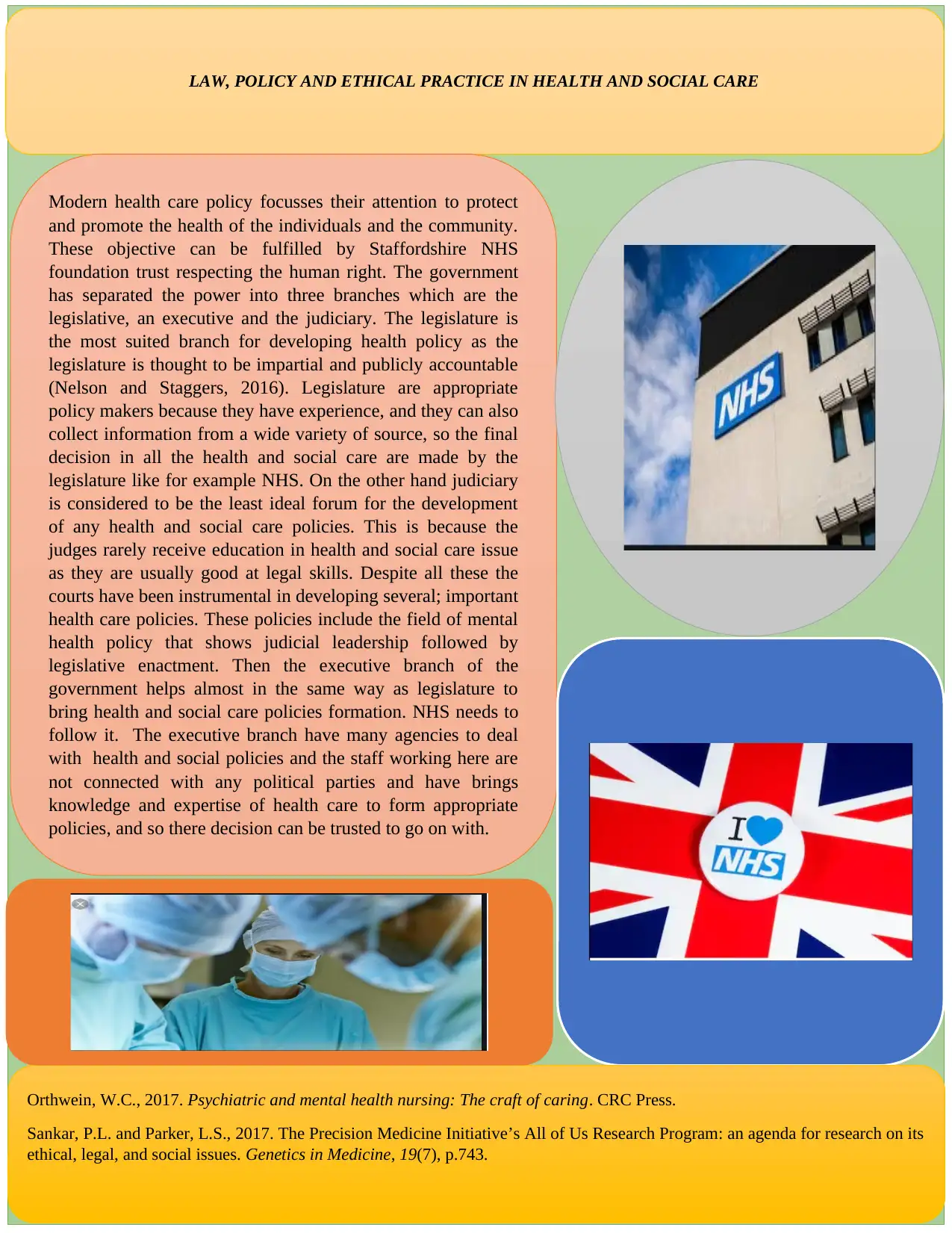Health and Social Care Policy: Understanding the Role of the Judiciary
VerifiedAdded on 2023/01/19
|1
|371
|83
Report
AI Summary
This report examines the structure of health and social care policy, focusing on the roles of the legislative, executive, and judicial branches of government. It highlights the significance of the legislature as a primary policy maker due to its impartiality and ability to gather information from diverse sources, using the NHS as an example. The report contrasts this with the judiciary, which, while less directly involved, has shaped policy through legal decisions, particularly in mental health. Additionally, it discusses the role of the executive branch and its agencies in policy development, emphasizing their non-political nature and expertise. The report also makes references to the role of ethics in policy making and highlights the need to ensure that these policies align with the rights of the individuals and the community.







![[object Object]](/_next/static/media/star-bottom.7253800d.svg)